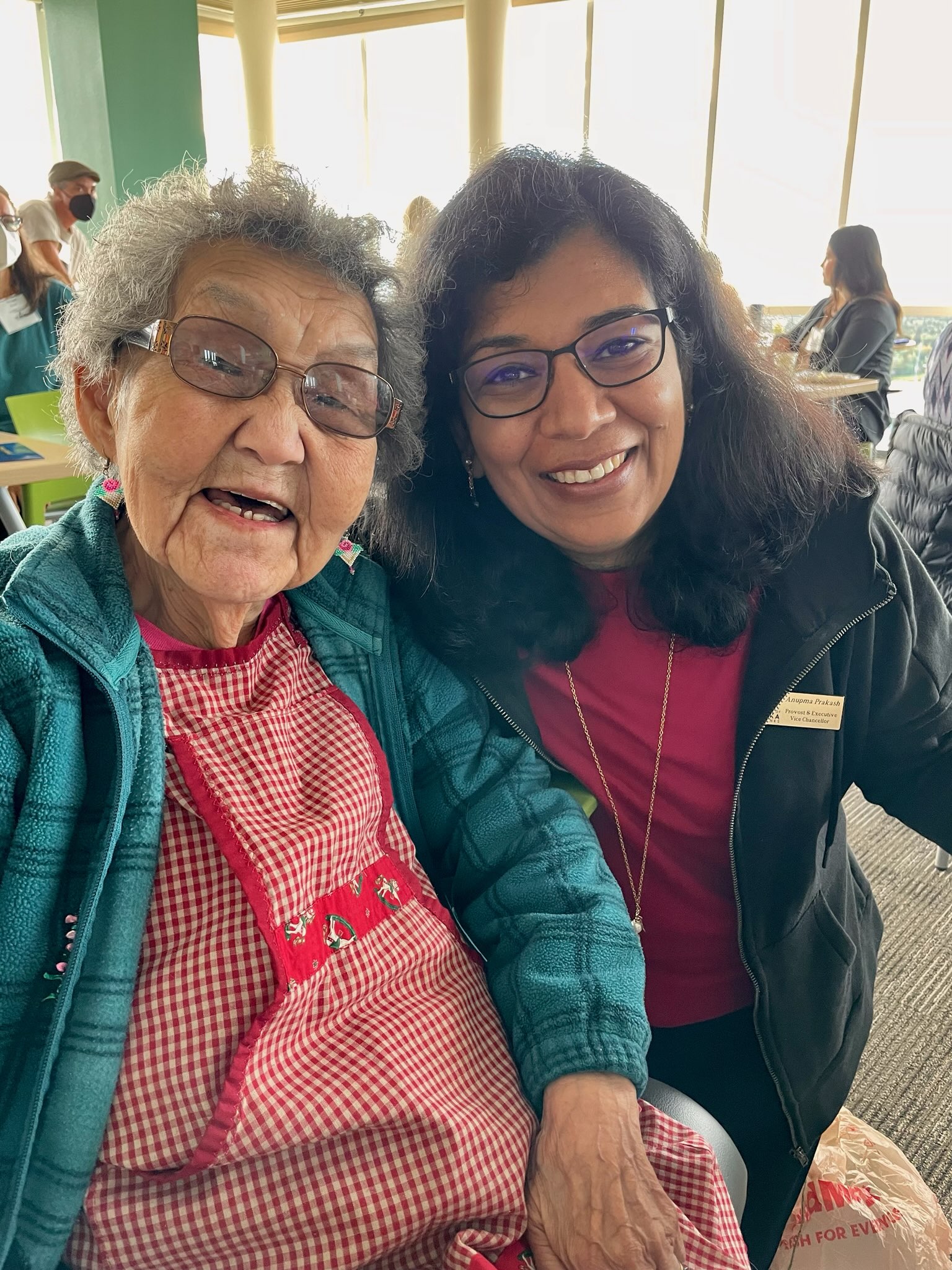Friday Focus: Intergenerational learning

Provost Anupma Prakash (right) with Bethel Elder Esther Green at the Indigenizing Pedagogy workshop held at the UAF Troth Yeddha’ campus in August 2022.
Sept. 9, 2022
— By Anupma Prakash, provost and executive vice chancellor
The last few weeks UAF has been abuzz with activity. We welcomed hundreds of new and returning students and their families on our campuses. We also extended a rich 2-day orientation for nearly 60 new faculty members! Thanks to the expanded for personally reaching out to every new faculty member and offering both in-person and remote cohort-building opportunities geared towards faculty success.
There were three meaningful events that I would like to share with you. In mid-August, the Kuskokwim campus and eCampus partnered to host a 3-day workshop on. The workshop included ÀÖ»¢Ö±²¥ Native Elders, and , who shared their wisdom, values and Indigenous ways of learning with a cohort of 35 faculty members. The collaboration and dialogs were directed to help faculty integrate the learned methods into their teaching. Later in August, hosted its fall retreat at the Gaalee'ya Spirit Camp located on the ancestral homelands of the Dena' people of the lower Tanana River. The venue provided a safe space for all participants to learn. Elders Eliza Winfrey and Chief Donald Charlie, a cohort of Indigenous Tamamta Fellows, staff and faculty mentors shared their struggles, successes, knowledge and stories. The transformative experiences gained through sharing will shape the research and learning pathways for all engaged in the retreat. And finally, this past weekend the opening night featured a performance by, where the Inuit singers not only played some energizing soulful music, but also shared how their music was inspired by their land and their Elders.
The common thread in these recent events of ‘intergenerational learning’ struck a personal chord for me. I was raised in India in a joint-family-system–that refers to a multigenerational household with multiple families. My grandparents, parents, uncle and siblings all lived in one house. The adjacent twin home housed my grandfather’s brother and the families of his sons. Traditions were passed from one generation to the other and we learned just as much, or more, informally from the family as we did formally in school. My dadi (paternal grandmother) only attended school until 3rd grade but her lived experiences were powerful. She could ‘read people’. No psychology textbook could teach me what she taught me early on about distancing myself from toxicity and building strong relationships. Listening to Esther Green reminded me of my grandmother and confirmed my belief that intergenerational learning does not depend on a direct relative. It can happen through other societal relationships including teachers, community Elders, mentors, close friends, youth and children.
Fast forward decades, I am now learning from a different generation, my children. They are deep thinkers, quick learners, digitally savvy, care about the world more than I recognize, embrace diversity, ask tough questions and challenge established paradigms. Their perspectives have often made me pause, recognize my implicit biases, think differently, reframe issues and reconsider my options. I have found their views and advice very valuable as I work to serve students in higher academia.
Through events such as those I have highlighted, academic programs particularly in the College of Rural and Community Development, research projects focused on co-production of knowledge, we are already expanding opportunities at UAF to learn from and be mentored by our community Elders. To take full advantage of intergenerational learning, we also need to flip the mentoring model and have younger students serve as formal mentors for more experienced faculty and staff mentees. The successes of this approach are documented through published literature () demonstrating skills and greater commitment to continuous learning especially through young mentors offering new ideas and approaches and inspiring mentees. I look forward to discussions and creating more opportunities for intergenerational learning at UAF.


